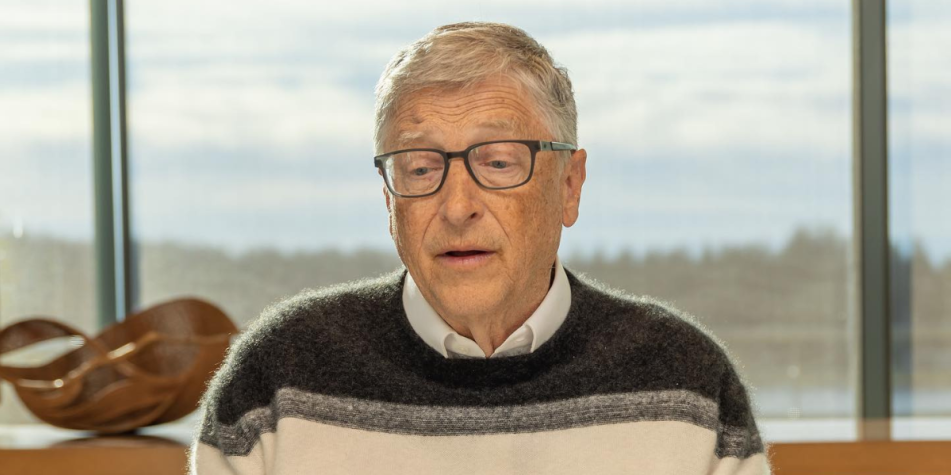Luciano Marraffini, a Bachelor of Biotechnology graduate from Rosario National University, was incorporated into the US National Academy of Sciences in 2019 for his research on CRISPR-Cas systems, a molecular tool used to “edit” or “correct” a cell’s genome. He is currently Professor and Director of the Laboratory of Bacteriology at Rockefeller University in New York. Marrafini is recognized for being one of the first scientists to explain how CRISPR-Cas systems work at the molecular level. “Humans get infected not only with viruses, but also with bacteria. To defend themselves, they make their own immune system and this is one of them.” Bacteria contain enzymes called nucleases, which have the ability to penetrate the genetic material of the virus entering the cell. Marraffini commented that it’s a very straightforward way to defend itself and “once the virus has inserted its genetic material into the bacteria, it uses CRISPR-Cas to cut them and thus end the infection.”
In 2006 he began investigating how this system works in bacteria and built his PosDoc based on this curiosity. “The reason I’ve been studying CRISPR-Cas for 15 years is because it’s not just an immune system, it’s a collection of different immune systems, so there’s always a new device to study. Also, during that time, CRISPR-Cas gained more international fame because these The systems can be transferred and placed in human cells, performing what is called gene editing. It has become a genetic engineering tool like no other, because it is very easy to use and this has given it great interest in the scientific community.”
A long way
Marraffini entered my BA in Biotechnology in 1993 and earned it in 1998. “My memories of my time at university are all good. What I stay with the most are friends who were one of them at the time and I am still in with. I also met my wife, so it was Something that stands out to me a lot.”
The researcher stressed that a bachelor’s degree in biotechnology was very demanding but at the same time very complete. “I remember the early years, the workload was huge. We spent a lot of time in college, we were almost all day. The intensity of the program made us learn a lot, something I appreciated over time. It is simpler and more interesting, because in the beginning the contents were more focused on mathematics and physics , and as the course materials went through, the details of the degree were accessed,” he recalls.
After completing his undergraduate studies, he chose to travel to Chicago to further his professional development. “At that time, I had the possibility of going to study at the European Molecular Biology Laboratory (EMBL) which has laboratories in Heidelberg, Germany. I went for an interview, but did not speak the language, I thought it would be difficult to live there. In return, I received some offers From different universities in the US, and although I had never been to the country, it seemed to me that it would be the most suitable.It was a decision I made with the logic of a 25-year-old boy, without thinking about what I did, once I chose the country, I headed towards the University of Chicago Because of her academic career and also because of the presence of an Argentine professor with whom I was able to establish a dialogue through Diego de Mendoza, Professor at the United Nations School of Biochemistry.”
Once this trip was completed, the biotech scientist in that city went on to do his postdoc. Finally, in 2010, he joined Rockefeller University to further study CRISPR-Cas immunity.
Marrafini joined the American Academy of Microbiology in 2017 and has been a member of the National Academy of Sciences since 2019. “It’s a great honor, especially since I’m relatively young to enter the Academy of Sciences. It’s really a recognition of the work that I’ve come from. It has had such an impact.” It serves to validate what one does in the present and what is expected in the future, I would have never imagined that at this age I would have such a distinction.”
dream come true
The professor at Rockefeller University stated that he had always had a great curiosity about science from those first readings in a very interesting journal. “I had it every month and read it carefully. I always had an innate science orientation and when I finished high school I decided to get a B.Sc in Biotechnology, because it was really what I wanted to do. So not everyone surprises me the way. I traveled because since I was young I knew that this What I loved.”
Changing countries is always a challenge, especially for a young man who is pursuing his dream. “It’s a big change but eventually you’ll get used to everything,” said Maravini, who has lived in the country under Joe Biden for more than 20 years. However, there are things that cannot be provided. “I’m a huge fan of Newell’s Old Boys, and I really miss going to the stadium. It’s something you definitely can’t do here.”
The biotechnologist admitted that although he was not an expert in the use of English, his bachelor’s degree helped encourage him to take on this challenge abroad. “For the past few years, almost all subjects have been in English, so reading papers and books for faculty has helped me a lot. I think science has the advantage that, even if you don’t have perfect English proficiency, it can be associated with different words and concepts, facilitating all Thing
The path is not simple, but it is full of questions and setbacks. “Being a researcher is hard, but it is like any passion: if there is something you want to do, you have to put your energy into it, not to get prizes or publications in important journals, but to enjoy every moment. 90 percent of experiments don’t work for a reason. What, but that’s part of enjoying science as well, you always have to keep up front that you’re doing what you want.”

“Social media evangelist. Student. Reader. Troublemaker. Typical introvert.”





:quality(85)/cloudfront-us-east-1.images.arcpublishing.com/infobae/D3V3FEQRKQ4HID3I3SLSUAXZGQ.jpg)

More Stories
They will bring science and technology closer to girls and boys
Valdepeñas' Plaza de España is hosting the CSIC science fair this weekend
New medicine for the genius man